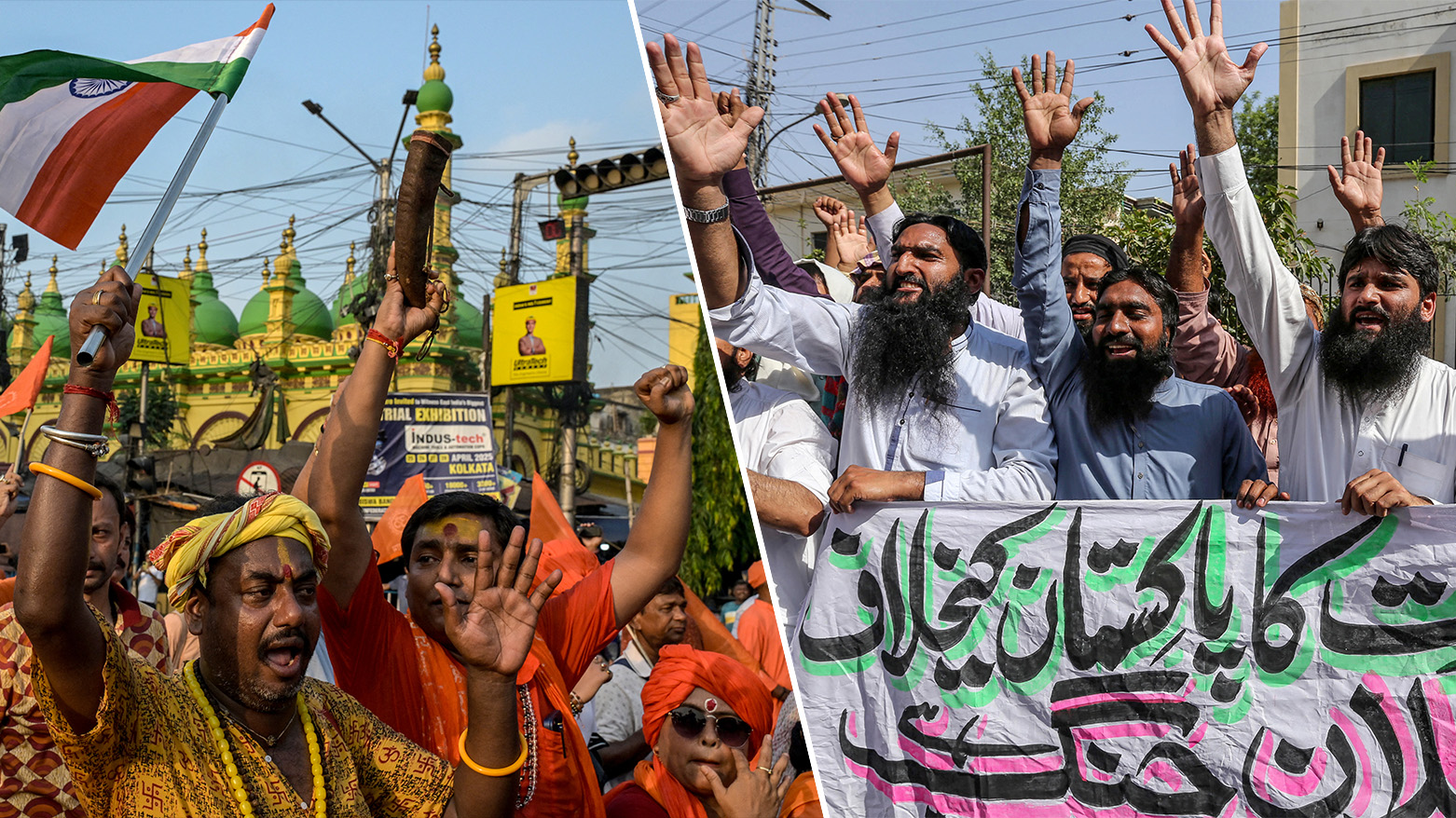Kashmir Massacre Sparks Fears of War Between Two Nuclear Powers
Indian Prime Minister Narendra Modi, delivering a defiant message, declared, "I say to the whole world, India will identify, track, and punish every terrorist and their backers. We will pursue them to the ends of the earth."

By Kamaran Aziz
ERBIL (Kurdistan24) — A deadly terrorist attack in Kashmir has plunged relations between nuclear-armed neighbors India and Pakistan into their most dangerous phase in years, triggering a series of retaliatory measures, cross-border skirmishes, and raising fears of full-scale military confrontation.
The attack, which occurred last Tuesday near the tourist town of Pahalgam, left 26 civilians dead — the worst massacre of its kind in decades in the contested region. According to the report by France24, the Indian government responded swiftly, cancelling visas for Pakistani nationals, suspending a critical water-sharing treaty, closing major border crossings, and downgrading diplomatic ties. Pakistan retaliated by expelling Indian diplomats, cancelling Indian visas, and suspending the 1972 Shimla Accord — a key framework for dialogue.
Amid the spiraling tensions, fiery exchanges of rhetoric and countermeasures have further inflamed the already volatile situation. Shafqat Ali Khan, spokesperson for Pakistan's Foreign Office, asserted that "the National Security Committee underscored that Pakistan and its armed forces remain fully capable and prepared to defend the nation's sovereignty and territorial integrity against any misadventure, as clearly demonstrated by Pakistan's resolute response to India's reckless incursion in February 2019." Meanwhile, Indian Prime Minister Narendra Modi, delivering a defiant message, declared, "I say to the whole world, India will identify, track, and punish every terrorist and their backers. We will pursue them to the ends of the earth."
Speaking to France24, Anish Gawande, national spokesperson for the Indian National Congress Party, captured the somber mood on the ground, saying, "When there is an attack on India, there are no political parties, and the mood in Kashmir today is one of solidarity, one of grief, one of mourning." Gawande, who was standing at the Shankaracharya Temple in Srinagar, emphasized that despite the deep pain and suffering, India remains united in the face of terror. "The intent of this attack was to divide us along religious lines," he added, "but we stand together, as Indians first."
Meanwhile, tensions on the ground escalated sharply. According to AFP, Indian and Pakistani troops exchanged fire across the Line of Control (LoC) for the third consecutive night, with Indian forces accusing Pakistan of "unprovoked" firing. No casualties have been officially reported, but the specter of conflict looms large.
Diplomatic efforts to defuse the situation have thus far borne little fruit. The New York Times reports that India appears to be building a case for potential military action against Pakistan, briefing foreign diplomats in New Delhi about Pakistan's alleged past patterns of support for terrorism, and citing preliminary technical intelligence connecting the attackers to Pakistan. However, no official attribution of blame has yet been made public.
The United Nations has called for "maximum restraint," and Iran's Foreign Minister Abbas Araqchi has offered mediation, as reported by IRNA. Pakistan has welcomed Iran's efforts and has also called for an international investigation into the attack. Pakistani Defense Minister Khawaja Muhammad Asif, according to IRNA, reiterated his country's denial of involvement and warned against escalation, stressing that "the flaring up of this war can cause disaster for this region."
The massacre was reportedly carried out by a little-known group called "The Resistance Front," believed by Indian authorities to be a proxy for the outlawed Lashkar-e-Taiba, based in Pakistan. However, as The Guardian notes, responsibility remains murky, and information on the attackers is still emerging.
In a controversial intervention, former U.S. President Donald Trump, speaking to the media, claimed that India and Pakistan had been "fighting over Kashmir for 1,500 years," as reported by The New Arab.
Analysts warn that retaliatory measures taken by both countries, combined with rising nationalist sentiments and military posturing, could push India and Pakistan into a dangerous cycle of escalation. As The New York Times notes, the current geopolitical climate — with global powers distracted by other crises — leaves New Delhi largely unrestrained by international pressure.
Despite Pakistan's offers of cooperation and a "neutral, transparent, and credible investigation," New Delhi seems determined to press forward. Modi’s government has been emboldened by broad domestic support and a history of muscular responses to terror attacks, including the 2016 "surgical strikes" and the 2019 Balakot air strikes.
The situation remains extremely volatile. Both nations have mobilized troops along the border, diplomatic channels are largely frozen, and calls for calm are being drowned out by escalating rhetoric. As the world watches anxiously, the Kashmir dispute once again threatens to ignite a broader conflict with potentially catastrophic consequences for South Asia and beyond.
